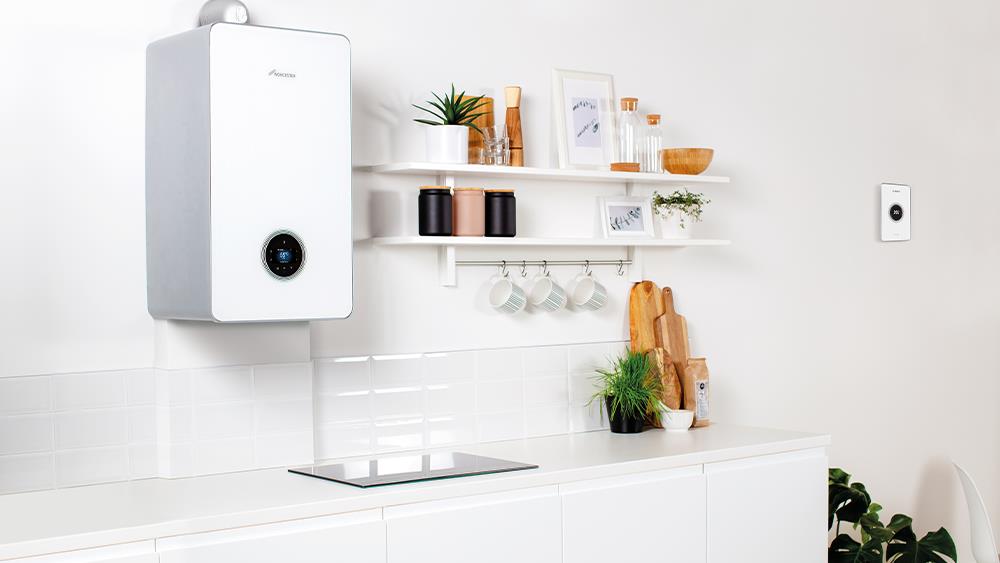

To keep you warm through a chilly January, Worcester Bosch has created a list of speedy tips to help homeowners save energy and money.
Worcester Bosch has shared its top practical tips to really energy and money for homeowners across the country this winter.
In a typical UK household, more than half of the money spent on fuel bills goes towards providing heating and hot water, according to the Energy Saving Trust. That’s why having an efficient and cost-effective heating system – and knowing what you can do to keep it in tip-top operation – is vital, both for your bank account and for the environment.
Becoming energy-savvy will be crucial as energy prices, and bills, continue to increase. A survey conducted by Redfield and Wilton Strategies recently showed that 49% of Brits feel that this surge is of greater concern to them than the pandemic.
A third of Brits are also planning to switch their heating off in cold weather to avoid rising costs – but there are practical steps we can all take that can avoid this scenario, to get the most out of your heating system without compromising on comfort.
Tip One: Bleed Radiators
According to a study of household skills by the Good Housekeeping Institute, less than half of millennials know how to bleed a radiator (which to note, was the most searched DIY query on Google between 2020-21). But it’s simple!
Releasing air that has been trapped inside your radiators throughout summer will help you to heat your home more effectively and reduce your energy bills significantly.
This needs to be undertaken when the boiler is off and the heating system cold. Beginning with the downstairs radiators furthest from the boiler, locate the bleed valve and place a towel under it to catch any water that may leak out. Using a key or a screwdriver turn the key anti-clockwise and listen for a hiss. Wait for the hiss to stop and turn the key back-around. Follow the same process in the house, moving from downstairs to upstairs, and you should be done in around 10 minutes.
If your boiler is sealed system type, i.e. a Combi boiler, then you will need to observe the pressure gauge and top up the system water up as required. Ideally, we need to end up with all of the radiators full of water and free of air and the pressure gauge reading 1 bar.
Tip Two: Book a Boiler Service
To keep your boiler running safely and efficiently, it is recommended that your boiler is serviced at least once a year.
Martyn Bridges, Head of Technical Communication and Product Management at Worcester Bosch, said: “In order to keep your boiler working as effectively as possible, it is important to book in regular boiler services, especially following a summer of infrequent use. Not having your boiler serviced could lead to faults, higher energy bills, and your warranty ending early.”
Tip Three: Control your Heating
With a cold snap inevitable at this time of year, it is very tempting to turn your heating up to the maximum and think nothing more of it.
However, to be a lot more efficient with making your heating system work around your schedule, and to save some cash too, spend some time setting the operating times and temperatures on your controls. If your system doesn’t at least have a room thermostat and programmer then you can make some significant savings by getting them installed.
According to Energy Savings Trust, room thermostats and thermostatic radiator valves could save you a minimum of £75 a year and reduce your carbon dioxide emissions by 320kg, so it is definitely worth the investment.
Tip Four: Check your Insulation
Over a quarter of heat is lost through the roof of an uninsulated home. However, before installing your loft insulation, it is essential to check the shape of your loft and know whether it is warm or damp as this will change the process of insulation.
In most houses, insulation is very easy to install. Your first layer of insulation is placed between the joists and the second is placed in right angles to achieve the right depth. If it’s a step too far for your DIY skills, call in a professional.
This simple tip means that you’re trapping heat all year round so you can save money, even when the summer rolls around!
Tip Five: Stop Heat Escaping
It’s not just your roof which could be losing heat. With many of us continuing to work from home, you will be spending more time indoors and may have the heating on when you usually wouldn’t. Simple steps can be taken immediately to improve heat distribution in your home at no cost to you:
Pulling furniture away from radiators can improve the circulation of air and make your radiator work more effectively. While, filling the gaps in your floorboards with strips, putty or filler, or even covering your floorboards with a rug or carpet will allow you to keep heat in.
Bridges said: “Ultimately, ensuring that heat stays inside your home is the most important, and simple way, to help you save money and energy daily. In addition to these simple steps, several other long-term solutions can be implemented, including using double glazed windows and fitting curtains, carpets and adding reflective foil to your walls, to ensure you are keeping heat in.”
Tip Six: Reflect Your Radiators
Turning on your radiator can boost your room temperature instantly, however the act of purchasing a radiator reflector can take this one step further!
The reflection from a panel reflects heat back into the room and the wall behind it. This simple science makes the most out of your radiator, as not only are you trapping the heat but you’re saving money by using less energy meaning that you can truly keep those winter blues at bay.